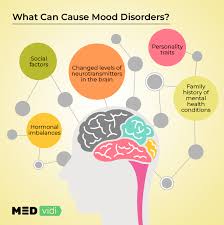Melatonin: A Natural Sleep Aid and More
Melatonin is a hormone produced by the pineal gland in the brain that regulates sleep-wake cycles. Known as the “sleep hormone,” melatonin plays a crucial role in promoting restful sleep and maintaining a healthy circadian rhythm.
But did you know that melatonin offers more benefits beyond just improving sleep quality?
The Benefits of Melatonin:
Improved Sleep Quality: Melatonin supplements are commonly used to treat insomnia and other sleep disorders. By taking melatonin before bedtime, you can help regulate your sleep patterns and improve the quality of your rest.
Antioxidant Properties: Melatonin is a powerful antioxidant that helps protect cells from damage caused by free radicals. This can help reduce inflammation, support immune function, and promote overall health.
Mood Regulation: Some studies suggest that melatonin may play a role in regulating mood and reducing symptoms of depression and anxiety. By supporting healthy sleep patterns, melatonin can contribute to better mental well-being.
How to Incorporate Melatonin into Your Routine:
Melatonin supplements are widely available over-the-counter and come in various forms, such as tablets, capsules, and gummies. It’s important to follow dosage instructions carefully and consult with a healthcare provider before starting any new supplement regimen.
In addition to supplements, you can naturally boost your melatonin levels by practicing good sleep hygiene. This includes maintaining a consistent sleep schedule, creating a relaxing bedtime routine, and minimizing exposure to bright lights before bedtime.
Conclusion
Melatonin is not only beneficial for improving sleep quality but also offers antioxidant properties and potential mood-regulating effects. Whether you’re struggling with insomnia or looking to support your overall health, consider incorporating melatonin into your daily routine under the guidance of a healthcare professional.
5 Essential Tips for Effectively Using Melatonin to Improve Sleep
- Take melatonin supplements 30 minutes to an hour before bedtime to help regulate sleep patterns.
- Consult with a healthcare provider before starting melatonin supplements, especially if you have existing health conditions or are taking medications.
- Use melatonin as a short-term solution for sleep issues rather than relying on it long-term.
- Create a relaxing bedtime routine to complement the effects of melatonin and improve sleep quality.
- Avoid exposure to bright lights, including screens from electronic devices, close to bedtime as they can interfere with melatonin production.
Take melatonin supplements 30 minutes to an hour before bedtime to help regulate sleep patterns.
Taking melatonin supplements 30 minutes to an hour before bedtime can be a beneficial way to help regulate sleep patterns. By timing the supplement intake close to your intended sleep time, you can support the natural production of melatonin in your body and signal to your brain that it’s time to wind down and prepare for rest. This proactive approach can assist in establishing a more consistent sleep routine and improving the overall quality of your rest.
Consult with a healthcare provider before starting melatonin supplements, especially if you have existing health conditions or are taking medications.
It is important to prioritize your health and safety when considering melatonin supplements. Before incorporating melatonin into your routine, especially if you have existing health conditions or are taking medications, it is advisable to consult with a healthcare provider. They can provide personalized guidance based on your individual health status and help ensure that melatonin is a safe and appropriate choice for you. By seeking professional advice before starting melatonin supplements, you can make informed decisions that support your overall well-being.
Use melatonin as a short-term solution for sleep issues rather than relying on it long-term.
It is recommended to use melatonin as a short-term solution for sleep issues rather than relying on it long-term. While melatonin can be effective in regulating sleep patterns and improving sleep quality, prolonged use may lead to dependency and potentially disrupt the body’s natural production of the hormone. It is best to consult with a healthcare provider to determine the appropriate duration and dosage of melatonin supplementation based on individual needs and circumstances. Incorporating lifestyle changes and practicing good sleep hygiene can also help address underlying issues contributing to sleep disturbances in the long run.
Create a relaxing bedtime routine to complement the effects of melatonin and improve sleep quality.
Creating a relaxing bedtime routine can complement the effects of melatonin and significantly improve sleep quality. By winding down before bed with calming activities such as reading, gentle stretching, or meditation, you signal to your body that it’s time to rest. Pairing this routine with melatonin supplements can enhance its natural sleep-inducing properties, helping you achieve a more restful and rejuvenating night’s sleep. Establishing a consistent bedtime ritual can promote better sleep habits and contribute to overall well-being.
Avoid exposure to bright lights, including screens from electronic devices, close to bedtime as they can interfere with melatonin production.
Exposure to bright lights, particularly from screens of electronic devices, close to bedtime can disrupt the body’s natural production of melatonin. Melatonin, known as the “sleep hormone,” is essential for regulating our sleep-wake cycle. By avoiding bright lights before bedtime, you can help support the natural production of melatonin and improve your chances of falling asleep more easily and enjoying a restful night’s sleep. It is recommended to create a calming bedtime routine that excludes exposure to bright lights from electronic devices to optimize melatonin production and promote better sleep quality.



